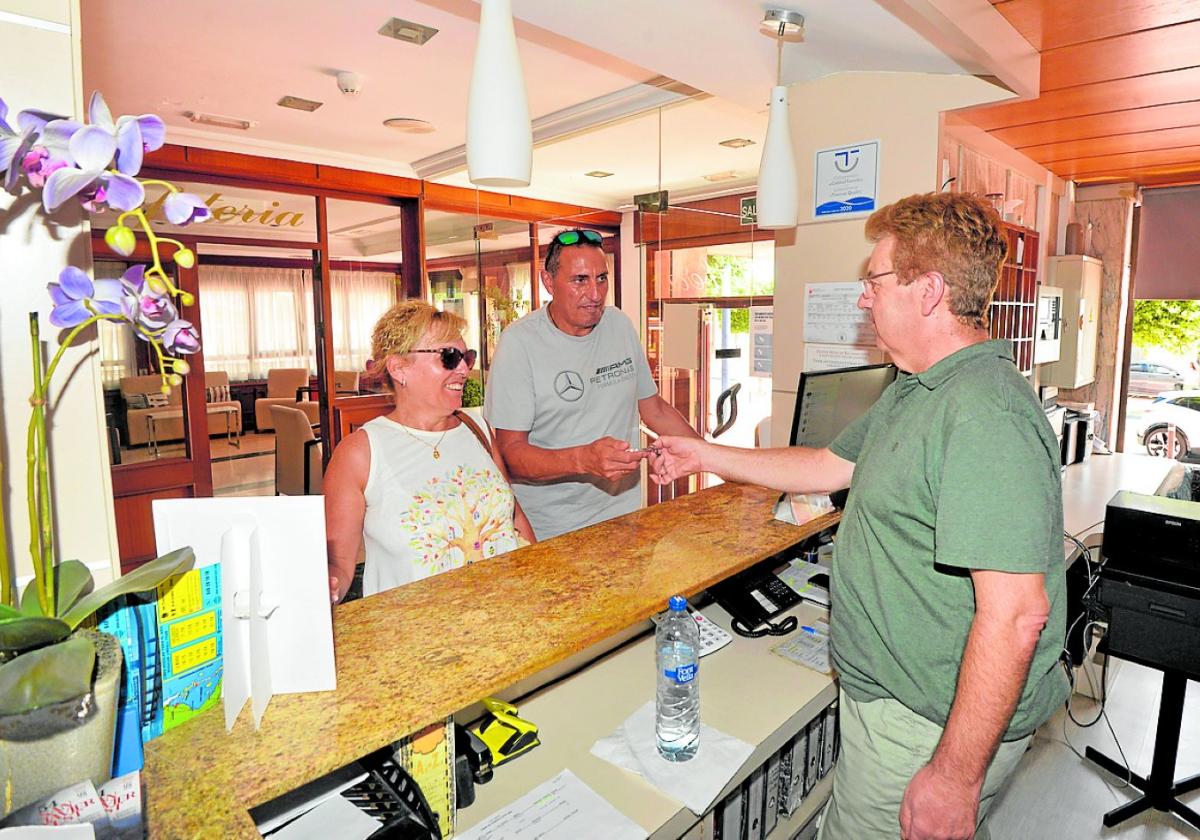

Sections
Highlight

Melchor Sáiz-Pardo / SUR
Madrid / Malaga
Friday, 4 October 2024, 10:52
Spain's tourism industry has heightened its criticism of the government's new regulations that significantly increase the amount of personal data recorded when customers check in to tourist accommodation or rent a car.
The controversial rules refer to the information about customers that these types of tourist businesses must send to the authorities and cover dozens of extra pieces of data such as check-in and check-out time, if internet was available during a stay and email address of the customer. These requirements were due to come in to force on 1 October but will now certainly come in on 2 December, the interior ministry of Fernando Grande-Marlaska has confirmed.
The government says it needs the information to be able to keep track of terrorists and organised criminal gangs. In the case of car hire firms, instead of 14 pieces of information they need to collect and share with the authorities now on each booking, this will go up to 64. For tourist accommodation 43 pieces of information will now be needed on guests.
The extra information gathering has also been criticised by international press - especially the Dutch and the British; these have spoken about tourists being subjected to "big brother" from now on when holidaying in Spain.
The Spanish confederation of hotels and tourist accommodation, Cehat, has repeated its rejection of the new rules.
According to the organisation, which represents some 16,000 businesses around the country, the problem of bringing them in does not lie in the lack of time for technological adaptation, but in the contents of the law itself, which it considers to be "incompatible with the reality of the tourism industry".
Cehat said that the rejection of the decree is unanimous both in Spain and in the European Union, due to the "legal insecurity, the lack of clarity in the text and the extra administrative burden".
The new rules will mean that properties must share more information about their guests and their reservation with the authorities through a new digital application. Industry bosses have also raised concerns that it could violate EU data protection directives
Hotels, agencies, tourism websites and individuals say it is "tremendously complicated" to compile the 43 pieces of information that the law requires for each of the guests, both for "professional" and "non-professional" accommodation.
It is even more difficult and time-consuming to fill in the 64 references required for the rental of a vehicle. Social and civil organisations are outraged, claiming the information required far exceeds any "reasonable request" and violates the right to privacy of guests or people renting a car. In the case of guests, until now only 14 pieces of information were required to be filled in.
In the case of people staying overnight, among others, the accommodations must fill in - in addition to the expected property name and guest identification data - other more sensitive data such as e-mails, exact check-in and check-out times, number of rooms, identification of the means of payment, card expiration, account numbers, the date of payment of the reservation, whether or not the room had internet and the relationship between the visitors, in case one of them was a minor.
For car rentals, the huge list of information to be provided includes additional parameters to those required from tourist accommodation, such as specifying whether the car had a GPS system to track its movements or the kilometres travelled.
On Tuesday this week, at the press conference following the weekly cabinet meeting, Fernando Grande-Marlaska insisted that this register needs to start operating "because of the need to guarantee public security in the face of terrorist threats and other crimes committed by terrorist organisations".
Publicidad
Publicidad
Publicidad
Publicidad
Esta funcionalidad es exclusiva para registrados.
Reporta un error en esta noticia

Debido a un error no hemos podido dar de alta tu suscripción.
Por favor, ponte en contacto con Atención al Cliente.

¡Bienvenido a SURINENGLISH!

Tu suscripción con Google se ha realizado correctamente, pero ya tenías otra suscripción activa en SURINENGLISH.
Déjanos tus datos y nos pondremos en contacto contigo para analizar tu caso

¡Tu suscripción con Google se ha realizado correctamente!
La compra se ha asociado al siguiente email
Comentar es una ventaja exclusiva para registrados
¿Ya eres registrado?
Inicia sesiónNecesitas ser suscriptor para poder votar.